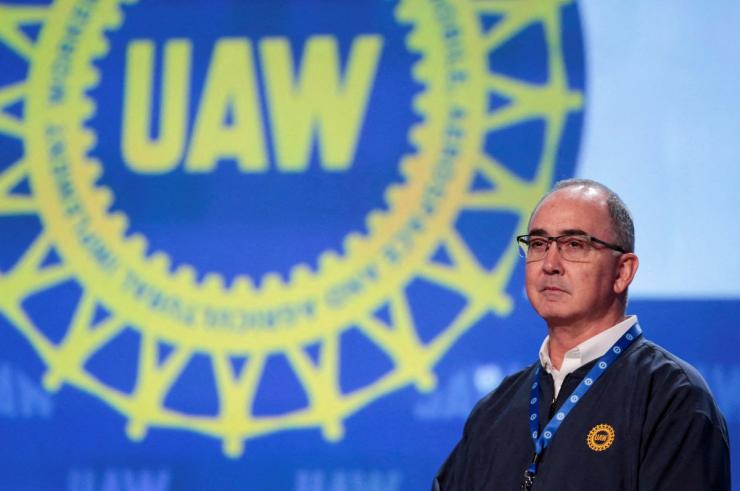The News
The United Auto Workers union voted overwhelmingly Friday to authorize potential strikes next month at General Motors, Ford, and Stellantis.
A total of 97% of members who participated in the strike authorization voted in favor of doing so, the union said. The vote does not guarantee a strike but empowers workers to do so if the automakers cannot strike a deal by Sept. 14.
“Our union’s membership is clearly fed up with living paycheck to paycheck while the corporate elite and billionaire class continue to make out like bandits,” said UAW President Shawn Fain. He and UAW members have for months been raising concerns about protecting employees as the industry transitions to electric vehicles.
SIGNALS
The White House is actively involved in negotiations because "there are meaningful public policy consequences to these negotiations,"• 1 says Seth Harris, a former Biden labor advisor. That is largely due to Biden's climate agenda, which requires a transition to electric vehicle production while ensuring high quality, unionized jobs. Still, Harris believes that a strike is "increasingly likely" simply because the two parties have swayed too far apart on demands and concessions.
A 10 day UAW strike could result in an economic loss of more than $5 billion,• 1 an analysis from the London-based Anderson Economic Group predicts. That could induce a single-quarter recession in Michigan like what happened during UAW's last strike, with potential ripple effects beyond the state. While consumers are typically insulated from autoworker strikes, vehicle inventories remain low because of the pandemic, meaning car buyers will likely have to wait even longer for new vehicles.
Anderson Economic Group, 10-day UAW strike against Big Three could cause economic losses exceeding $5 billion
Ford will require its white-collar workers to do blue-collar jobs• 3 if a strike is organized, according to documents obtained by the Detroit Free Press. Most salaried workers will be sent to plant depots across the country as a "band-aid they can put on" to keep sales up. And while Wall Street is typically favorable to contingency plans during strikes, analysts say it may be different this time because of how secretive Ford's defense plan appears to be. "The white-collar workers look like scabs," one analyst told the Free Press.



